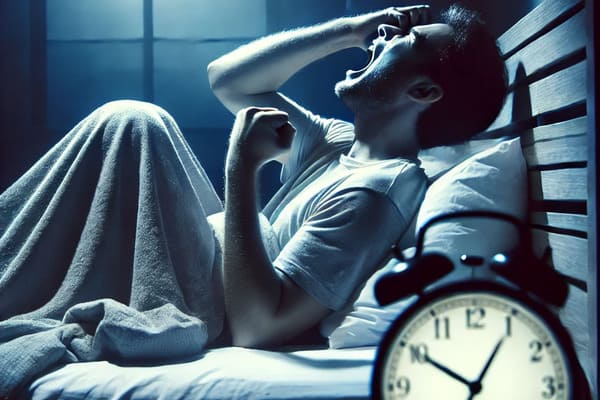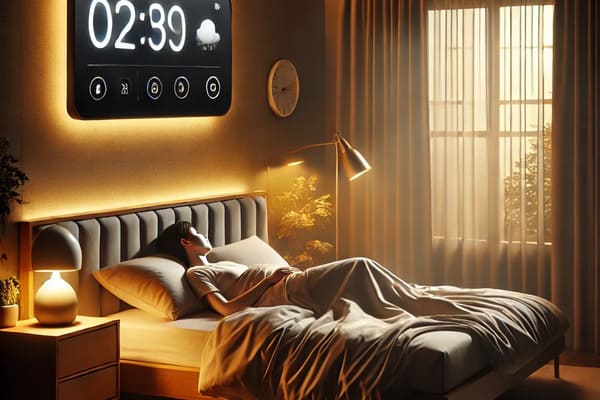Returning from a vacation often means struggling with a disrupted sleep schedule. Whether it’s due to jet lag, late nights, or a different time zone, getting back to a regular sleep cycle can feel like an uphill battle. Studies suggest that it can take days or even weeks for your body to fully adjust after a change in routine. However, with the right approach, you can reset your sleep cycle after vacation efficiently and wake up feeling refreshed.

Understanding Sleep Disruptions After Vacation
Vacations often lead to irregular sleep patterns. Late-night activities, time zone changes, and inconsistent sleep schedules confuse your body’s internal clock, also known as the circadian rhythm. According to the National Sleep Foundation, even a two-hour shift in bedtime can significantly impact sleep quality. This is why resetting your sleep cycle quickly is crucial to avoid prolonged fatigue and sluggishness.
How Long Does It Take to Reset Sleep Cycle After Vacation?
The time it takes to reset your sleep cycle varies based on factors like age, sleep habits, and overall health. For minor disruptions, it may take just a couple of days, whereas significant time zone shifts can take up to a week. The American Academy of Sleep Medicine suggests that consistent exposure to natural light, a fixed bedtime, and good sleep hygiene can speed up the adjustment process.
Practical Tips for Resetting Your Sleep Cycle After Vacation
Expose Yourself to Morning Sunlight:
Natural light is a powerful tool for regulating circadian rhythms. Aim to spend at least 20–30 minutes outside in the morning, as sunlight signals your brain to reduce melatonin production, making you feel more awake and energized. If sunlight exposure isn’t possible, consider using a light therapy lamp to mimic natural daylight.
Avoid Blue Light Before Bed:
Screens from phones, tablets, and laptops emit blue light, which suppresses melatonin production and makes it harder to fall asleep. Try to limit screen time at least an hour before bedtime. If avoiding screens is difficult, consider using blue light filter apps or wearing blue light-blocking glasses to reduce the impact.
Stick to a Consistent Schedule:
Going to bed and waking up at the same time every day, even on weekends, helps reinforce a stable sleep pattern. Your body thrives on routine, and consistency trains your internal clock, making it easier to fall asleep and wake up naturally over time.

Limit Stimulants in the Evening:
Caffeine and alcohol can significantly interfere with sleep quality. Caffeine has a half-life of about five hours, meaning it can stay in your system for much longer than you might expect. Avoid coffee, energy drinks, and other stimulants at least six hours before bedtime. While alcohol may make you feel drowsy, it disrupts REM sleep and can cause frequent nighttime awakenings.
Use Relaxation Techniques:
Engaging in relaxation activities before bed can help signal to your body that it’s time to sleep. Meditation, deep breathing exercises, and progressive muscle relaxation can reduce stress and promote deeper sleep. Reading a book, taking a warm bath, or practicing gentle stretches can also help wind down before bed.
Create a Sleep-Friendly Environment:
Optimize your bedroom for sleep by keeping it cool, dark, and quiet. Use blackout curtains to block outside light, maintain a room temperature between 60-67°F (15-19°C), and use white noise machines or earplugs if noise is an issue. Incorporating circadian lighting—smart lighting that mimics natural daylight patterns—can also help regulate your body’s internal clock and improve sleep quality. Investing in a comfortable mattress and pillows further enhances restful sleep.
Can you Fix Your Sleep Schedule in One Day?
If you need a fast solution for fixing your sleep cycle after vacation: making targeted adjustments in a single day can help. Start by waking up at your usual time, even if you feel groggy. Expose yourself to natural sunlight in the morning to regulate your body’s melatonin production. Avoid naps, limit caffeine, and engage in light exercise to promote better sleep at night. Gradually shifting your bedtime earlier by 15-30 minutes per night can also ease the transition back to your normal schedule.

Does Pulling an All-nighter Reset Sleep Cycle?
A common belief is that pulling an all-nighter can help reset a disrupted sleep cycle after vacation. While staying up for a full day might seem like a quick fix, it often does more harm than good. Sleep deprivation negatively impacts cognitive function, mood, and overall health. According to a study published in the journal Sleep, missing just one night of sleep impairs memory and reaction time. Instead of an all-nighter, focus on gradually adjusting your sleep-wake cycle to prevent exhaustion and long-term sleep debt.
The Role of Melatonin in Resetting Your Sleep Cycle
If you’re wondering, can I use melatonin to reset sleep cycle?—the answer depends on how you use it. Melatonin supplements can be effective in adjusting your body’s internal clock, especially after long-haul travel. According to a 2022 review in The Journal of Clinical Sleep Medicine, taking melatonin 30 minutes before bedtime can help signal to your body that it’s time to sleep. However, melatonin should only be used temporarily and at a low dose to avoid dependency.
Resetting Sleep Cycle After Vacation Requires Patience
Resetting your sleep cycle after vacation requires patience and consistency. Rather than relying on quick fixes like all-nighters, focus on gradual adjustments and healthy sleep habits. By following these strategies, you can restore your natural rhythm, improve sleep quality, and wake up feeling energized. If persistent sleep disruptions continue, consulting a sleep specialist may be beneficial.
Making sleep a priority ensures that post-vacation fatigue doesn’t linger, allowing you to return to daily life feeling well-rested and ready to go.




